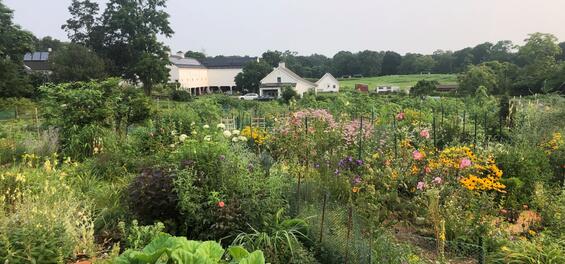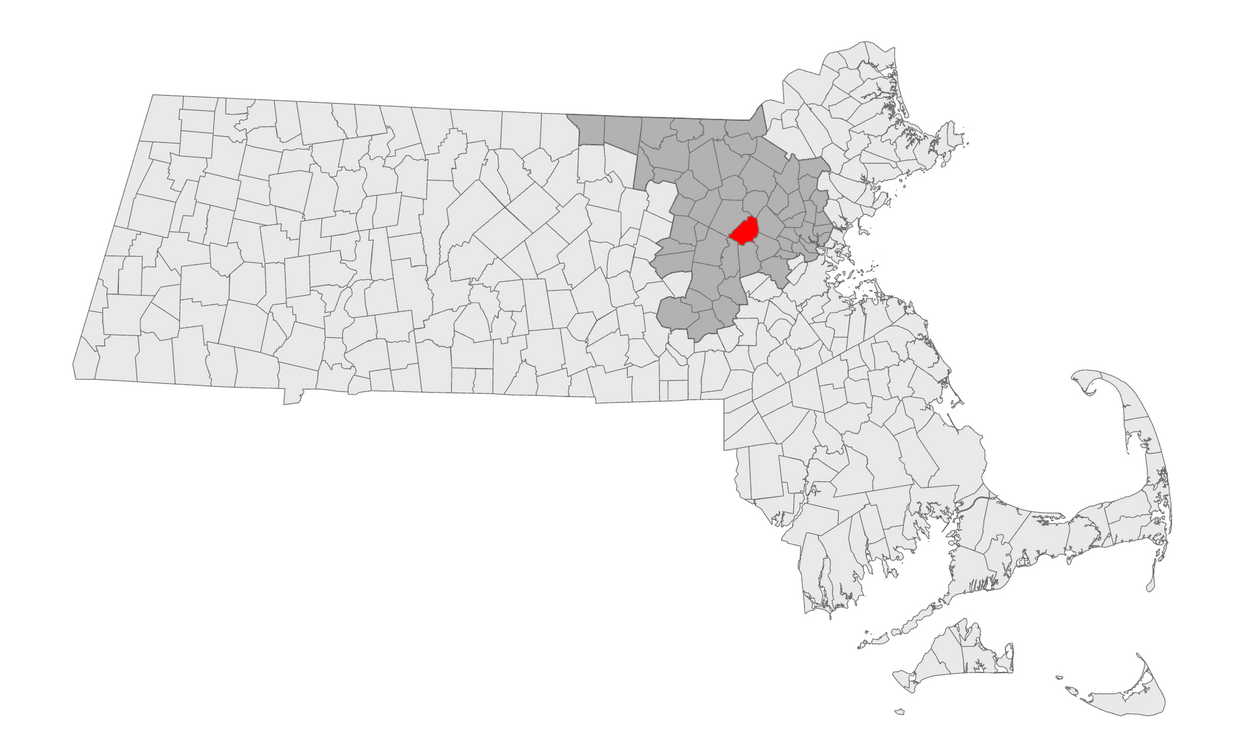Lincoln Overview
Lincoln is a town in Middlesex County, Massachusetts, in the upper Northeastern part of the state. They have a population of 6,890 people and an area of 14.2 square miles. Climate hazards present in Lincoln include inland flooding, drought, extreme temperatures, and severe winter storms.
Lincoln MVP 2.0 Core Team
The MVP 2.0 Core team is a group of municipal staff and Community Liaisons who work together to identify local climate resilience priorities and implement a project that supports those priorities.
Lincoln's Community Liaisons include representation from:
- Farmer
- Food Pantry
- Affordable Housing Renter
Lincoln's Core Team includes municipal representation from:
- Assistant Director of Planning and Land Use
- Information Technology Director
- Conservation Planner
- Building & Board of Health Administrative Assistant
Lincoln's Community Resilience Priorities
Community resilience priorities are practical actions created during the MVP 2.0 Planning Grant process. They were shaped through community input, thoughtful discussion about changing local needs, and feedback from Environmental Justice groups and other community members.
Lincoln, in partnership with their Core Team, identified the following priorities through the MVP 2.0 process.
| Priorities | Potential Actions | ||
|---|---|---|---|
| Priority 1: Improve access to Town planning and decision-making processes, especially for vulnerable and historically marginalized populations, in order to build trust and a stronger sense of belonging. | Potential Actions: Update the Town website to improve accessibility, user-friendliness and intuitiveness, to make it easier for all community members to find and access information about public meetings, committees, and processes to get involved. This includes translating the website into multiple languages, providing accommodations for sight, hearing, and cognitive impairments, and color-blindness. Provide all Town information and materials in multiple languages and make interpretive services available at all public meetings. | ||
| Priority 2: Improve town-wide multi-directional communications and information-sharing by expanding the range of communication methods the town uses, creating a centralized information hub for community-focused resources, and removing barriers to accessing information. | Potential Actions: Conduct a public sign-up drive for Town robo-calls and push-notifications. Conduct a Town-wide assessment of community information needs and the most effective communication mechanisms for various audiences. | ||
| Priority 3: Address the financial burdens of increasing housing and energy costs byimproving access to affordable housing and energy efficiency practices in ways that consider the diverse needs of all residents. | Potential Actions: Increase housing availability. Simplifying the process for residents to navigate availability, enrollment, and waitlists. | ||
| Priority 4: Reduce food insecurity by improving effective communication about available food support resources and increasing access to transportation to/from grocery stores and other food providers. | Potential Actions: Establish knowledge-sharing education programs on home gardening. Increase communication and education about Town water quality. Provide accessible, ADA-compliant transportation methods to affordable grocery stores and Food Pantries. | ||
| Priority 5: Expand public transportation offerings in Lincoln, including the range of options and reliability, especially for vulnerable populations to access critical services such as grocery stores, medical appointments, and employment opportunities. | Potential Actions: To be determined. | ||
| Priority 6: Expand resources and support from the Town for job seekers, especially un- and under-employed individuals from socially vulnerable populations, and those at risk of job loss due to climate impacts. | Potential Actions: Create a centralized, accessible job-board website for all Town employment opportunities. | ||
| Priority 7: Increase support for local farmers facing hardship due to unpredictable and extreme weather patterns by providing educational resources and trainings on climate-resilient agricultural practices, creating more opportunities for relationship-building between farmers and the broader community, and exploring financial assistance programs. | Potential Actions: Provide infrastructural support to farmers to combat the negative effects of climate change. Educate farmers on climate-resilient, sustainable farming practices. Explore incentives for climate-resilient farming and expanded solar energy use. | ||
| Priority 8: Reduce the risk of vector-borne illnesses in Lincoln through policies, projects, and educational initiatives for residents. | Potential Actions: Promoting the planting of resilient tree species. Improving deer management practices. | ||
| Priority 9: Improve access to safe, accessible indoor and outdoor community spaces to promote community-building, support community health and well-being, and provide respite from extreme weather. | Potential Actions: Improve safe walking and biking trails and paths. Implement responsible mosquito control and deer management plans. | ||
Lincoln's MVP 2.0 Seed Project
Lincoln received funding to implement a Seed Project that addresses one or more of their climate resilience priorities.
Lincoln aims to build local food systems resilience through a comprehensive community food justice, food security, and agricultural economic development program. This program will include addressing food deserts through partnerships local food pantry and community garden as well as farmers and growers.
Activities:
- Addressing food deserts in North Lincoln through partnerships with the food pantry, community garden, Hanscom Air Force Base, Council on Aging, Lincoln Housing Authority, and other potential partners. Solutions could include mobile or pop-up farmers markets, food pantries, grocery deliveries, etc.
- Assisting overburdened local food growers with tax breaks, subsidies, purchase agreements, training programs, employment assistance, and access to other farmer/grower assistance programs and resources.
- Building community connections through an expanded Community-Supported Agriculture program, which may include:
- Partnerships with local farmers and growers, and the agricultural commission for land-sharing, harvest-sharing, and labor-support;
- Cooperative agreements between growers and food pantries or other public service providers.
Lincoln's Action Grant Projects
The MVP Action Grant provides funding to communities that want to take important steps to prepare for climate change, such as dealing with extreme weather, flooding, rising sea levels, and extreme heat.
Lincoln Comprehensive Climate Action Plan (L-CAP) Proposal FY23
This project developed a comprehensive climate action plan for the Town of Lincoln, capturing lessons learned and building template resources for other smaller Massachusetts municipalities at the suburban-to-rural edge of Greater Boston. The project aims to holistically address vulnerabilities to the human, built, and natural environments and build resilience to climate change impacts, with a focus on inclusive and equitable engagement and restorative approaches for vulnerable communities.










